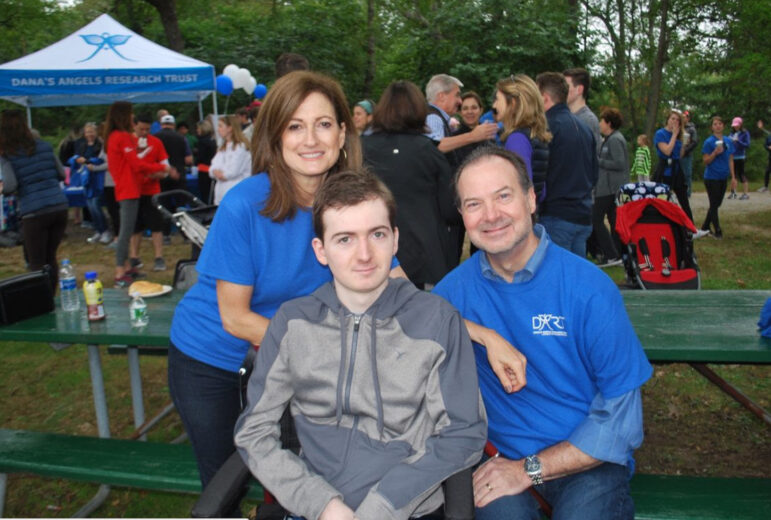Please join Dana’s Angels Research Trust on Saturday, September 25 at 8:30 am at Tod’s Point in Old Greenwich.

Gather your friends and family and join DART for a family-friendly 2-mile walk around beautiful Greenwich Point Park in Old Greenwich, and help raise much needed funds to find a better treatment and ultimately a cure for Niemann-Pick type C disease.
For those in other parts of the world, sign up as a VIRTUAL walker and walk anywhere.
Click here for the DART to the Finish sign up. (Once your registration is complete, you will receive a unique referral link to share with your friends, family or post on social media)
On the 25th, gather at 8:30am the South (2nd) Concession at Tod’s Point, 13 Tod’s Driftway in Old Greenwich, or for Virtual Walkers…anywhere that’s good for you. (Note: No dogs allowed at Tod’s Point by the Town of Greenwich at this time of year.)
Expect an invigorating 2.0 mile walk around the park, and help DART raise much needed funds to find a cure for Niemann-Pick type C disease.
No beach pass, no problem, DART has you covered.
All Greenwich and CT COVID-19 guidelines will be followed for a fun but safe walk, but if you’re still concerned, sign up as a VIRTUAL WALKER and you can still be an important part of the effort. If we need to go all-virtual again we will.
Urgent funds are still needed and the children are counting on us all to continue the amazing progress in NP-C research and treatment trials.
If you have any questions about this race, please contact the race director at [email protected]

Dana’s Angels Research Trust is a non-profit organization that funds research into a rare disease, Niemann-Pick type C (NPC), a fatal, cholesterol-storage disease affecting children. Two of the Marella’s four children, Dana and Andrew, were afflicted by NPC. Most children who suffer from NPC die in their early teens, but DART has helped change that fate. As an all-volunteer organization, over 95% of the funds expended are channeled directly into supporting pivotal NPC research; research that may also help millions of people suffering from HIV/Aids, heart disease, stroke, Alzheimer’s disease and other disorders that appear to be related to cholesterol.
Sadly, the Marella’s daughter, Dana, 19, passed away in the Summer of 2013. When Dana died, she was confined to a wheelchair, no longer talked, suffered from frequent pneumonia and required constant care, but she always had a smile on her face and was an inspiration to many, both here and around the world. The Marella’s youngest child, Andrew, who turns 22 on June 3, 2021, is relatively stable right now, although with the passing of his sister, Andrew struggles with seizures. Andrew has benefited from two experimental medications, all due in large part to the supporters of DART.
Niemann-Pick type C (NPC) is a rare genetic disease. But there is strong interest in studying NPC from researchers in many fields because of its connection to cholesterol metabolism. Research has shown that studying NPC may unlock the mysteries related to more common diseases affecting millions.
HIV/AIDS and Ebola: The NPC protein is critical for the normal trafficking of cholesterol in all of the cells in our bodies. Research shows that chemical creation of the NPC defect in diseases like HIV and Ebola results in drastically reduced infection, indicating that the NPC protein associated with cholesterol trafficking is required for infection.
Alzheimer’s: Alzheimer’s and NPC are progressive neurological diseases with similar effects on the brain. Recent studies comparing the two diseases discovered that Alzheimer’s is closely tied to a failure in cholesterol metabolism – the very process that is central to NPC.
Heart Disease and Stroke: We all know that high cholesterol is the main cause of heart disease and stroke. But until the gene that causes NPC was discovered, researchers had few opportunities to identify the complex processes that regulate cholesterol. How does the body know if it has too much cholesterol or too little? NPC research is beginning to provide answers.